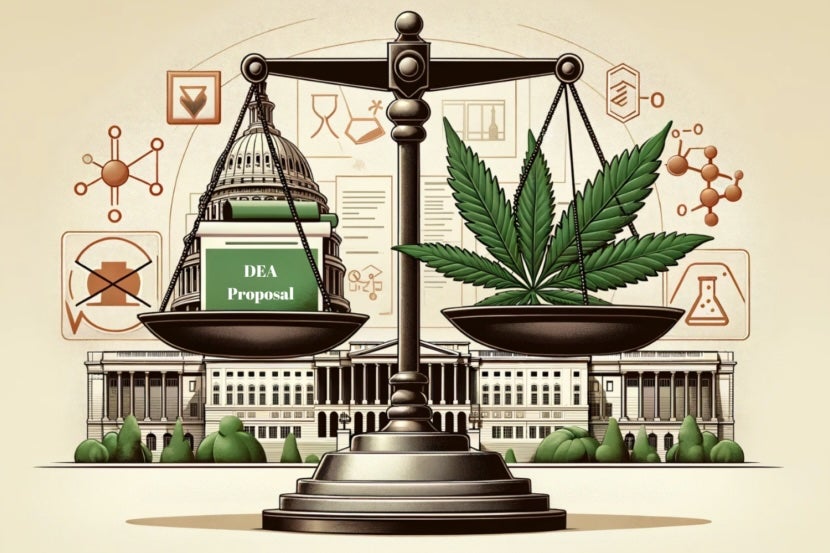Unraveling the Controversy: DEA’s Cannabis Rescheduling Hearings Under Fire
The ongoing cannabis rescheduling hearings held by the Drug Enforcement Administration (DEA) have ignited a firestorm of controversy. Accusations of bias and lack of transparency in the process have raised significant questions regarding the future of cannabis regulation in the United States. As the hearings drag on, investors have watched anxiously as stocks within the cannabis sector, including major players like Canopy Growth and Ascend Wellness Holdings, have experienced substantial declines. This article aims to delve deeper into this unfolding situation, exploring its implications for the industry and the broader debate surrounding cannabis legalization.
The Context of DEA’s Cannabis Rescheduling Hearings
The DEA’s cannabis rescheduling hearings are part of a broader initiative to assess the current classification of cannabis under the Controlled Substances Act. Currently classified as a Schedule I substance, cannabis is deemed to have a high potential for abuse and no accepted medical use. However, as more states move toward legalization and a growing body of research highlights its medicinal benefits, calls for rescheduling have intensified.
In recent years, public opinion has shifted significantly in favor of cannabis legalization. According to a Gallup poll, as of 2021, 68% of Americans supported legalizing cannabis, a stark contrast to just 12% in 1969. This growing acceptance has put pressure on federal agencies, including the DEA, to reevaluate outdated policies. Yet, the process has not been without its controversies.
Accusations of Bias and Lack of Transparency
Critics of the DEA’s hearings have raised concerns that the agency is not approaching the rescheduling process with the necessary impartiality. Accusations of bias stem from the DEA’s historical stance on cannabis and its perceived reluctance to embrace scientific evidence that supports rescheduling.
- Historical Context: The DEA has long maintained a stringent position against cannabis, which many argue is rooted in outdated perceptions and political motivations rather than scientific evidence.
- Transparency Issues: Stakeholders have criticized the lack of clear communication from the DEA regarding the criteria and processes involved in the hearings. This opacity fuels speculation and mistrust among industry participants.
- Public Engagement: Many advocates have called for greater public engagement in the hearings, arguing that the voices of patients, medical professionals, and researchers should be more prominently included in discussions about cannabis rescheduling.
The Impact on Cannabis Stocks
As the controversy around the DEA’s cannabis rescheduling hearings unfolds, the financial market has reacted with notable volatility. Cannabis stocks, which were once seen as a burgeoning investment opportunity, have experienced significant downturns.
For instance, companies like Canopy Growth and Ascend Wellness Holdings have seen their stock prices plummet, raising concerns among investors about the viability of the cannabis market. The uncertainty surrounding the outcome of the hearings has led many investors to adopt a wait-and-see approach, further compounding the market’s instability.
Factors Contributing to Stock Declines
Several factors are contributing to the declines in cannabis stocks:
- Market Sentiment: The perception that the DEA may not reschedule cannabis in the near future has led to a bearish outlook among investors.
- Regulatory Concerns: Ongoing regulatory hurdles and the slow pace of federal legalization have made investors wary of the long-term prospects for cannabis companies.
- Profitability Issues: Many cannabis companies are still struggling to achieve profitability, which has made investors more cautious in a fluctuating market.
The Broader Implications for the Cannabis Industry
The ongoing DEA hearings and the controversies surrounding them have far-reaching implications for the cannabis industry. The outcome of these hearings could influence not only the legal status of cannabis but also the overall market dynamics.
Potential Outcomes of Rescheduling
If the DEA decides to reschedule cannabis, it could lead to several significant changes:
- Increased Research Opportunities: Rescheduling would allow for more extensive research into the therapeutic benefits of cannabis, potentially unlocking new medical applications.
- Access to Banking Services: A change in classification could ease the restrictions cannabis companies face when seeking banking services, allowing for smoother financial operations.
- Market Expansion: Legalization at the federal level could open up new markets and increase competition, benefiting consumers with more options and potentially lower prices.
Challenges Ahead
However, even if rescheduling occurs, significant challenges will remain:
- State vs. Federal Laws: A patchwork of state laws regarding cannabis remains, complicating the regulatory landscape and creating potential conflicts.
- Public Perception: Continued stigma surrounding cannabis use may hinder its acceptance, particularly among certain demographics.
- Market Saturation: As more states legalize cannabis, market saturation could become a concern, leading to increased competition and pressure on prices.
The DEA’s cannabis rescheduling hearings are a critical juncture in the ongoing evolution of cannabis policy in the United States. While the path forward remains fraught with challenges and uncertainties, the growing momentum toward legalization and changing public attitudes present an optimistic outlook for the cannabis industry.
Investors and stakeholders must remain vigilant, advocating for transparency and fairness in the rescheduling process. As the hearings continue, the cannabis community’s collective voice may very well shape the future of cannabis regulation, balancing the need for responsible oversight with the undeniable benefits that cannabis can offer to individuals and society as a whole.
Ultimately, whether the DEA’s hearings result in rescheduling or maintain the status quo, one thing is clear: the conversation around cannabis is evolving, and the push for reform is stronger than ever.
See more Business Focus Insider Team

